Introduction
The cryptocurrency market is a place where people buy and sell cryptocurrency and psychology of market cycles play huge role. The stock market and cryptocurrency market is influenced by many factors,
including economic data and financial news.
But did you know that psychology can also play a big role in how the stock market behaves?
In this article, we will explore the psychology of the stock market and how it can affect investors’ decisions.
Psychology of Market Cycles
Market cycles are a natural part of the economy, but they can be confusing and even scary to many people.
However, understanding the psychology behind market cycles can help us make better financial decisions.
Then we feel more confident during times of volatility.
At its simplest, a market cycle refers to the regular pattern of ups and downs in the stock market.
During an upswing, prices generally rise and investors are optimistic about the economy.
During a downswing, prices fall and investors become more cautious.
These cycles can last anywhere from a few months to several years.
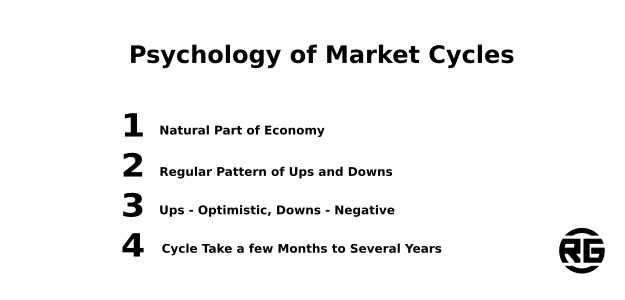
Market cycles are an important part of economics, indeed.
What Causes These Cycles?
While there are many factors at play, one major driver is investor psychology. When prices are rising,
investors tend to become more confident and willing to take risks.
They may believe that the good times will continue indefinitely, leading to a buying frenzy that drives prices even higher.
However, this can create a bubble that eventually bursts, causing prices to plummet.
Conversely, during a downturn, fear and uncertainty can take over.
Investors may worry that the economy will continue to decline, leading them to sell their stocks and hoard cash.
This can further depress prices and create a self-fulfilling prophecy of negative sentiment.
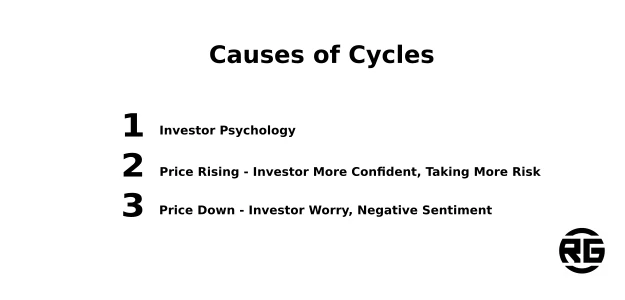
Without a doubt, investor psychology is largely responsible for market cycles.
How Manage Our Emotions?
One important step is to understand that volatility is a normal part of investing.
We should not panic during downturns, but rather view them as an opportunity to buy stocks at a lower price.
It’s also important to have a diversified portfolio that includes a mix of stocks, bonds,
and other assets. This can help us weather the ups and downs of the market.
Knowing psychology of market cycles is helpful in managing own emotions.
Another strategy is to avoid making impulsive decisions based on fear or greed.
Instead, we should focus on our long-term goals and stick to a solid investment plan.
This can help us avoid getting swept up in the excitement of a market boom or the despair of a market crash.
You need to know that, market cycles are a natural part of the economy.
It is driven by investor psychology.
By understanding the psychology behind these cycles and taking a disciplined approach to investing.
We can make better financial decisions and feel more confident during times of volatility.
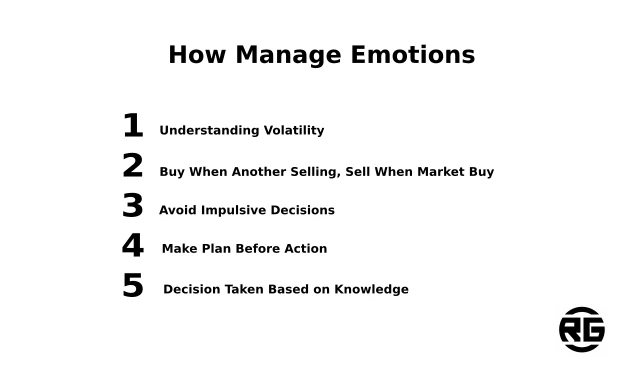
Bear Market
A bear market is time when stock prices are falling. The overall economy is not doing well.
This can be a scary time for investors. Understanding what causes a bear market and how to navigate it can help ease some of the fears associated with it.
A bear market can be caused by a number of factors,
including a recession, political instability, or global events such as a pandemic.
During a bear market, many investors become fearful and may start selling off their stocks,
leading to a downward spiral in prices.
This can create a cycle of negative sentiment and can last for months or even years.
Understanding psychology of market cycles will help you survive during this difficult time.
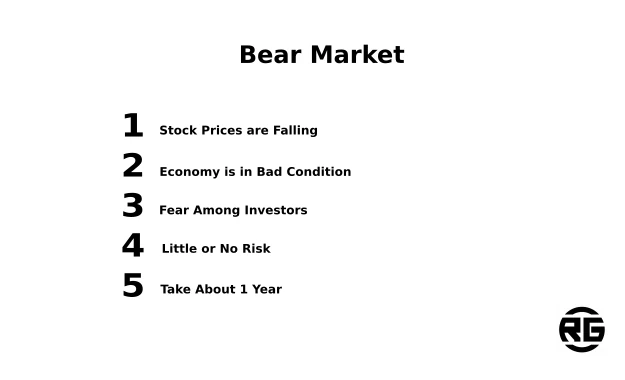
What’s more, a bear market lasts about 1 year.
How Can We Navigate a Bear Market?
The first step is to stay calm and avoid making impulsive decisions based on fear.
It’s important to remember that the stock market is cyclical, and bear markets are a natural part of the investing process.
Historically, the stock market has always bounced back from bear markets,
although the timing of the recovery can vary.
Psychology of market cycles explains where we are on the market cycle.
One strategy for navigating a bear market is to diversify your portfolio.
This means investing in a mix of stocks, bonds, and other assets that are not all tied to the stock market. This can help cushion the blow of a bear market and reduce your overall risk.
Another strategy is to focus on investing for the long-term. Bear markets can be scary in the short-term,
but they typically have less of an impact on long-term investments.
By staying focused on your long-term goals and not getting caught up in short-term market fluctuations, you can help minimize the impact of a bear market on your investments.
Finally, it’s important to stay informed and keep up with the news during a bear market.
This can help you understand the factors driving the downturn and make informed decisions about your investments.
A bear market can be a scary time for investors,
but understanding what causes it and how to navigate it can help ease some of the fears associated with it.
By staying calm, diversifying your portfolio, investing for the long-term, and staying informed,
you can minimize the impact of a bear market on your investments.
Bull Market
A bull market is a term used to describe a period of time when the stock market is rising and the overall economy is doing well. This can be an exciting time for investors,
but it’s important to understand what causes a bull market and how to make smart investment decisions during this time.
A bull market can be caused by a number of factors,
such as strong economic growth, low unemployment, or an increase in corporate profits.
During a bull market, investors tend to be optimistic about the economy and are more willing to take risks.
This can create a cycle of positive sentiment and lead to a rise in stock prices.
After mastering psychology of market cycles you can easily recognize when bull market happen.
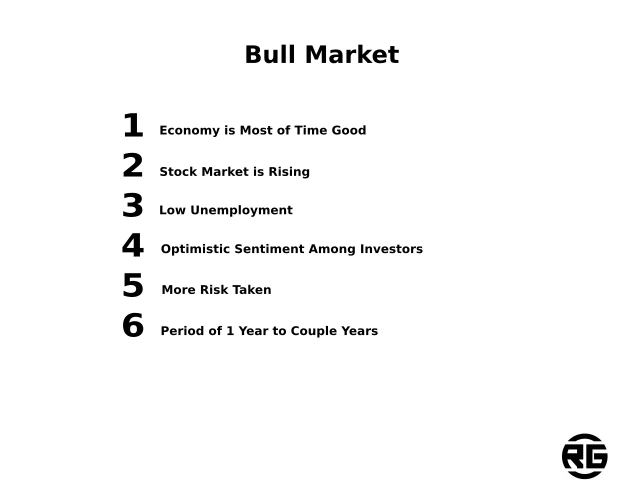
A bull market is completely different from a bear market, indeed.
How Make Smart Investment Decisions?
The first step is to avoid getting caught up in the excitement and making impulsive decisions based on greed. It’s important to remember that bull markets are cyclical, and they will eventually come to an end.
It’s important to stay disciplined and avoid making risky investments that could lead to big losses.
Another strategy for navigating a bull market is to diversify your portfolio. This means investing in a mix of stocks, bonds, and other assets that are not all tied to the stock market.
This can help protect you from the impact of a sudden downturn in the market.
Finally, it’s important to stay informed and keep up with the news during a bull market. This can help you understand the factors driving the market up and make informed decisions about your investments.
You should also be aware of any warning signs that the market may be getting overheated and prepare accordingly. Psychology of market cycles give indicators like huge enthusiasm which leading to euphoria.
A bull market can be an exciting time for investors,
but it’s important to stay disciplined and make smart investment decisions. By avoiding impulsive decisions,
diversifying your portfolio, and staying informed,
you can maximize your returns during a bull market while minimizing your risk.
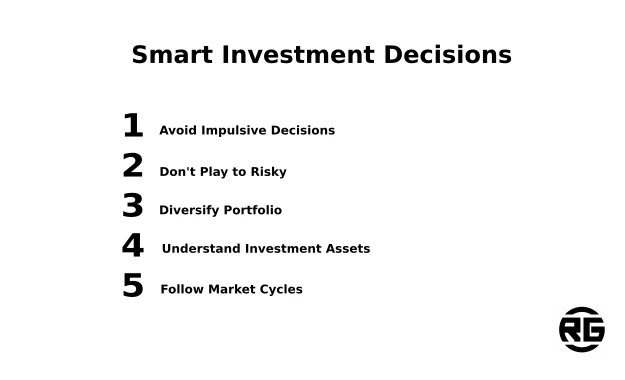
Wise investment decisions will allow you to make money in the market.
Psychology on the Market
The psychology of the market cycles can have a big impact on how it behaves.
This is because the stock market is driven by people’s emotions and perceptions,
as well as by actual economic and financial data.
Role of Feelings
One important psychological factor that affects the stock market is fear.
When investors are afraid, they tend to sell their stocks and move their money into safer investments, such as bonds.
This can lead to a downward spiral in stock prices, which can create even more fear and lead to more selling.
On the other hand, when investors are feeling optimistic and confident,
they tend to buy more stocks and take on more risk.
This can lead to a rise in stock prices, which can create even more optimism and lead to more buying.
Rule of Herd Bahavior
Another psychological factor that affects the stock market is herd behavior.
This is when investors follow the crowd and make investment decisions based on what others are doing,
rather than on their own research and analysis.
This can create a feedback loop that amplifies both positive and negative market trends.
Cognitive Biases
Finally, cognitive biases can also play a role in the psychology of the stock market.
These are subconscious biases that can affect how people perceive and interpret information.
For example, people may be more likely to remember positive news about a company they own stock in,
while ignoring negative news. This can lead to overconfidence and make it difficult for investors to make rational decisions.
The psychology of market cycles is an important factor to consider when investing.
By understanding how emotions, herd behavior, and cognitive biases can impact the market,
investors can make more informed decisions and be better prepared for market fluctuations.
It’s important to stay disciplined and avoid making impulsive decisions based on fear or greed, and to focus on long-term investment goals.
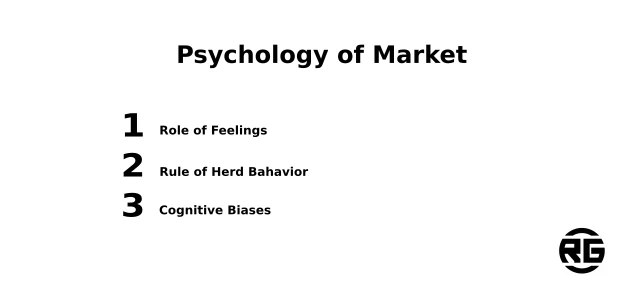
Market psychology is guided by several issues: the role of emotions, crowd behavior and cognitive errors.
Summary
The psychology of the market cycles is an important factor to consider when investing.
The cryptocurrency market is influenced by emotions, herd behavior, and cognitive biases, which can impact how investors perceive and interpret information.
Fear can cause investors to sell their cryptocurrencies, while optimism can lead to more buying.
Herd behavior can create a feedback loop that amplifies market trends,
and cognitive biases can make it difficult for investors to make rational decisions.
By understanding these psychological factors,
investors can make more informed decisions and be better prepared for market fluctuations.
It’s important to stay disciplined and avoid making impulsive decisions based on fear or greed,
and to focus on long-term investment goals.

Leave a Reply
You must be logged in to post a comment.